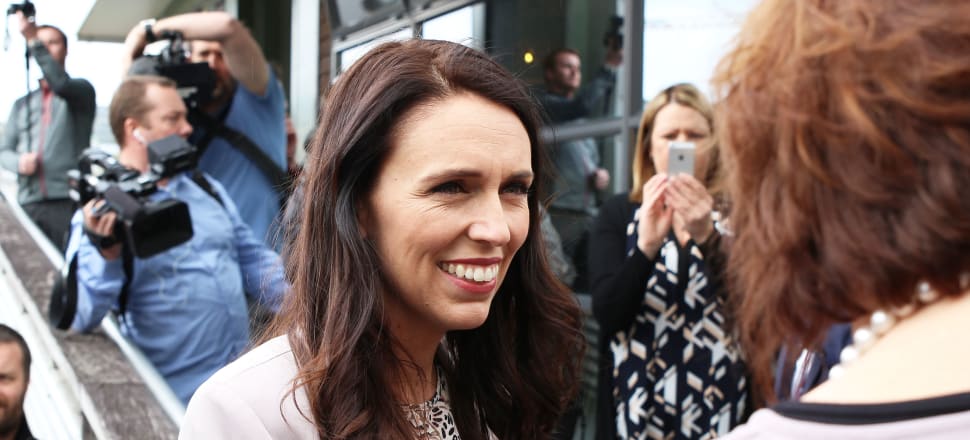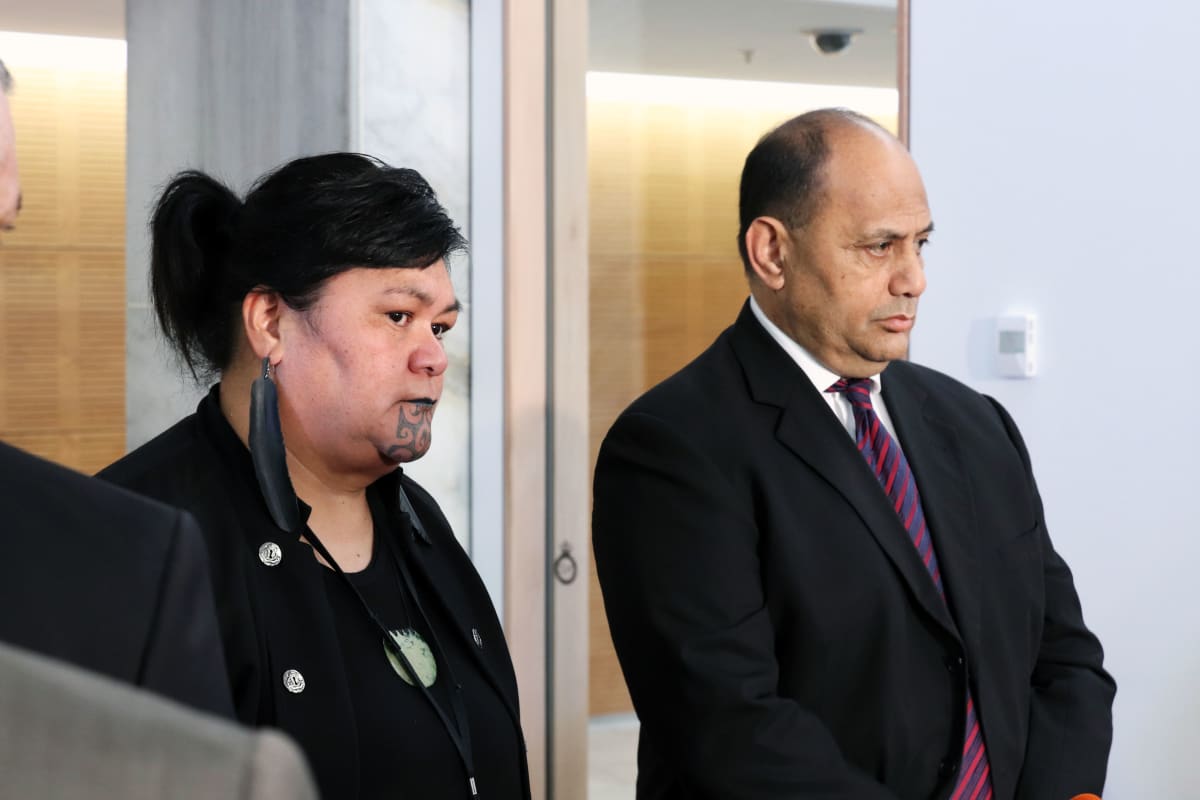
PM takes some blame for the lack of detail around the Three Waters debate while pointing her finger at those who have deliberately misrepresented government reforms
Analysis: The Prime Minister says the Three Waters debate has been muddied by a combination of things, and she accepts the Government has played a role in that.
Water ownership, local and iwi representation, and anti-privatisation entrenchment are just some of the areas that have plagued Three Waters’ progress as the Government has worked to push through the legislation before the summer break.
READ MORE:
* Co-governance work set to be put on hold
* The chaos behind the Greens' Three Waters amendment
An entrenchment clause was passed during urgency last month, which Labour is now going to throw back to the House so the ruling party can vote it down after public backlash from constitutional law experts.
“There’s been a number of elements where it’s been easy, I think, for the issue to be muddied,” Ardern tells Newsroom.
“We have to accept where that may have been [and] where our role is.
“But equally, just this morning I had someone say, 'local government doesn’t support it' - well actually, local government has supported reform, it’s just had different views on what that looks like. There’s been lots of parts of this debate for lots of reasons that have been very fraught and difficult.”
The problems with the proposed reforms have often been a result of one single issue being “misrepresented”, Ardern says.
“It’s probably in part the complexity of the reforms, and in part it’s been easy to turn it into something very different.”
That’s a not-so-subtle dig at National and ACT, both of which oppose the reforms and have raised concerns about co-governance and an attempted power-grab by central government.
“By default, it’s self-fulfilling. The things I end up speaking on are the things people ask me about." - Jacinda Ardern
The Government’s had three particularly contentious work programmes on the table this year that have sucked up a lot of oxygen - Three Waters, the RNZ/TVNZ merger, and the response to the United Nations Declaration on the Rights of Indigenous Peoples (UNDRIP).
Last week, Māori Development Minister Willie Jackson told Newsroom he was increasingly leaning towards stalling the work around UNDRIP because of concerns Māori and non-Māori don’t understand the point of it.
The draft declaration plan for meeting the UN commitments was meant to go out to the public for consultation earlier this year but was held up going to Cabinet for approval because Jackson knew his colleagues wouldn’t agree to the proposals.
Cabinet will meet later this month when Jackson is likely to recommend stalling the work and instead spend next year engaging with the public on the purpose of the declaration.
Pushed on whether Ardern agreed with Jackson’s assessments, she refused to get ahead of any Cabinet decision still to come.
Jackson is also in charge of the creation of the new public media entity after the former broadcasting minister, Kris Faafoi, left politics earlier this year.
On Sunday in a particularly bombastic interview by Jackson on TVNZ, he skidded close to breaching the public broadcaster’s editorial independence in his criticisms of the style of interview and the negative impact it might have on how viewers perceive the merger.
Ardern hadn’t seen the interview in question - plausible deniability is always useful in those situations - but she rejects any connection between Jackson’s personal style and what it means the Government is trying to achieve.
“Because he has an interview where he’s bombastic, does that mean we’re removing the editorial independence of our public service broadcasters? That’s not my view.
“We’ve still got work to do on the merger, it’s not completed. It is not, however, number one on the Government agenda,” she says.
By late afternoon on Monday, Ardern had become concerned enough to look at some of the excerpts of the interview. She raised the matter with Jackson and told him she didn’t agree with some of the comments he’d made.
When Ardern enters a debate
The Prime Minister hasn’t spent much of her own oxygen on the media merger, or UNDRIP, and only more recently joined the Three Waters debate when it shifted to being framed as a response to the cost-of-living crisis.
“People just haven’t had the opportunity to properly engage, and actually that’s on us too." - Jacinda Ardern
Asked if she was selective about the debates she got involved in and when, Ardern says she became a spokesperson at the point she was asked to.
“By default, it’s self-fulfilling. The things I end up speaking on are the things people ask me about.
“If people believe something to be controversial, they’ll then ask me about it.”
This is a question of what she thinks is worth spending her political capital on.
The controversy about Three Waters in the past few months finally reached the point where it needed her input, and given the economic headwinds New Zealand is facing it was easy enough to reframe it as a cost-of-living issue.
The public media merger and UNDRIP haven’t hit a threshold at this point that Ardern sees fit to weigh in but given the next stage of the merger is picking who will chair the new board, that is likely to change.
Jackson is supportive of former National MP Simon Bridges but Ardern has no interest in a former politician taking up the job, and that will be an opportunity for her to put her foot down.
Ardern says not one member of the public has raised the public media merger with her but if the Government did nothing, she says an “increased spend and some form of rescue package” would be needed because of declining revenue.
But she also accepts about 25 percent of people say they don’t have a view on the merger because there isn’t a lot of information out there about it, “and the word merger doesn’t really tell you the full story”.
So, is the lack of understanding about the merger and UNDRIP Jackson’s fault and is the muddied Three Waters debate because of Local Government Minister Nanaia Mahuta’s failure to explain the reforms?
“I don’t want it to be seen as anyone being at fault, I don’t think it’s that simple,” she says.

Nobody is served well if all political parties don’t keep on working on ways to debate the big issues, whether it's Three Waters or something else, Ardern says.
“As a general rule of thumb, whether it’s a debate about Three Waters or UNDRIP, it can be misconstrued if you say, I don’t think the issue is well understood - that somehow this is us saying it’s not our fault people aren’t supporting something.
“People just haven’t had the opportunity to properly engage, and actually that’s on us too,” Ardern says.
“There will be occasions where you’ll see the public debate and you can see sometimes what we’re debating isn’t fundamentally what is on the table, and that can derail debates, it can make it very difficult. We’ve seen countless examples of that, but again that’s for us, we have to make sure we figure out a way to have those discussions based on the facts of what’s being proposed.
“I have found that over the last 12 months it has become increasingly hard on some of the issues, I can’t give you a reason as to why but that’s something we have to grapple with.”
Where the debates happen and how the public gets its information has all changed over time, she says.
“Do we end up having these debates fall by the wayside simply because they become very difficult and fraught?
“When I look at the environments we have now, increasingly the places where these things are dissected and where you do get lots of analysis does happen to often be in the public domain through media commentary, analysis and so on.
“Increasingly, people don’t singularly get their information from those sources and it’s a big question we all have to grapple with. If that’s the case and there are those changing environments, how do we as a country debate the big stuff?”
With Parliament scheduled to rise for the year on December 14, Ardern says the Christmas break provides an opportunity to reflect.
“To just pause, stand back and say, in the next 12 months what are the things we really need to prioritise, and by prioritising does it mean there are things that you then just say we don’t have the capacity within government to pursue those issues, and they’re just not the most important things for us.”
It’s now a time to reshuffle the policy and the people in charge of implementing it, which Ardern will do in January when she announces her line-up heading into the election.
While some policy will be stalled altogether, other reforms might find their way into Labour’s 2023 election manifesto instead.
But with the economic doom and gloom not expected to dissipate until well after the election, Labour won’t be able to have anything too sparkly in its electoral goody bag.







